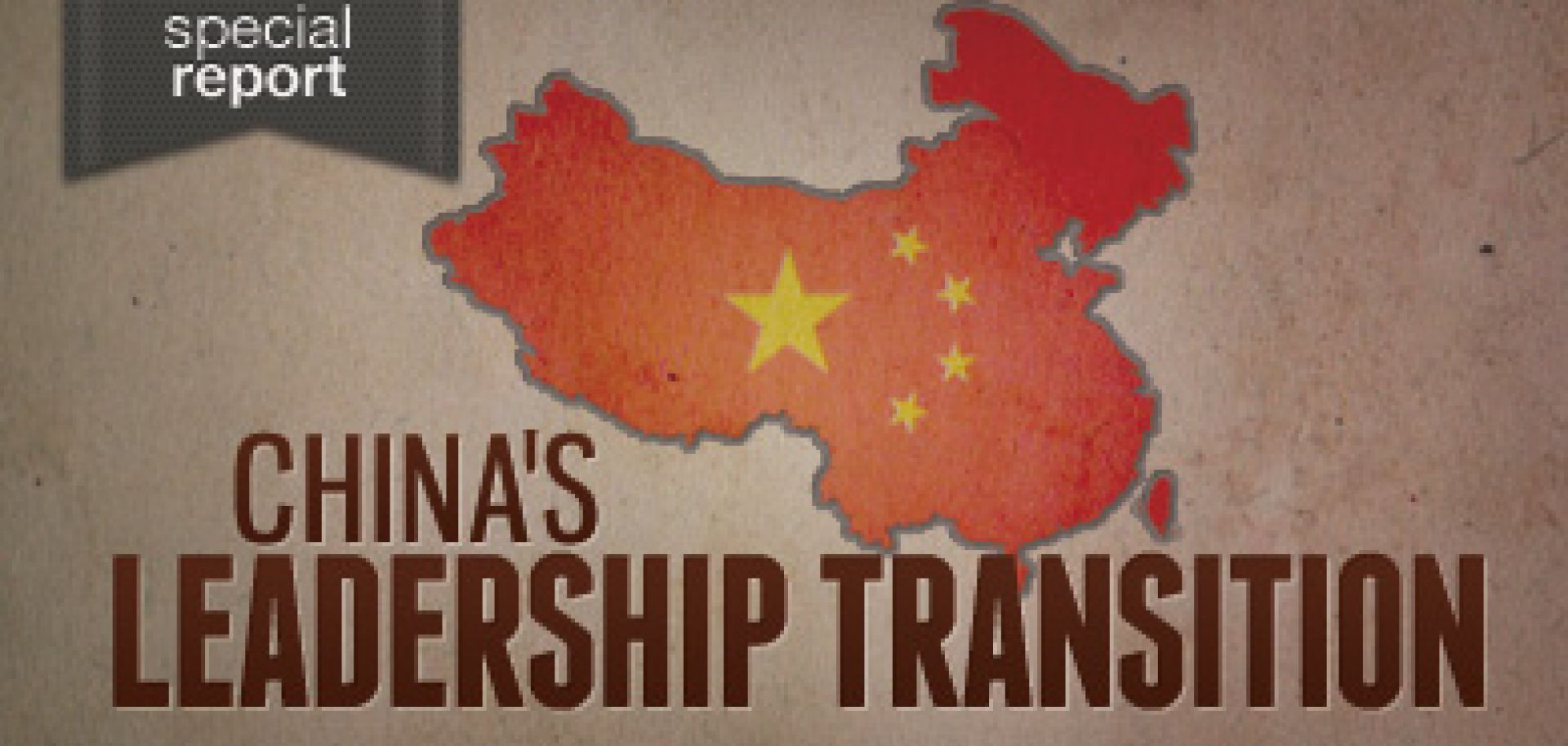ASSESSMENTS
China's Leadership Transition: Reframing the Party
Nov 14, 2012 | 11:30 GMT

Stratfor
Summary
Editor's Note: This is the third installment of a series on China's political future. Click to read part one and part two.
As China's 18th Party Congress draws to a close and the new Politburo Standing Committee is revealed, international and Chinese news media will be looking for signs, however oblique, that the Communist Party is on the road to reform. What reform means in the Chinese context remains unclear, but that may be exactly what Beijing wants.
China is approaching the end of a two-decade economic cycle, and the country's leaders are finding that the pillars of Party legitimacy that Deng Xiaoping outlined in the 1980s are crumbling. Slowing economic growth, rising regional inequality and widespread corruption have undermined Deng's ideal of economic pragmatism and the promise of prosperity for ordinary citizens. China's growing military power is challenging Beijing's narrative of "peaceful rise." And a string of high-profile political scandals have laid waste to the image of a unified, foresighted Party leadership. In this environment, maintaining control requires that the Party open itself in image — and perhaps, to a limited extent, in practice — to ideas of political, social and economic reform.
Subscribe Now
SubscribeAlready have an account?
